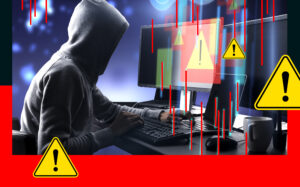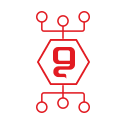Managers in a changing reality
The vaccines are already here, the atmosphere of the end of the course is already felt in the air, but the effects of a virus
The corona on the business world will not disappear in the foreseeable future. This is how you will prepare for the next day.
Guy Hochman - CEO of Genie Computing Services
The corona virus took us all by surprise. As business owners and CEOs of Hafezi Haim, we were required to overcome the shock, abandon most of the conventions we knew about "how our business works" and ensure business continuity - all this in an environment of uncertainty. Within a few days, many businesses went into emergency mode, moved employees to work from home, They established decentralized service and sales centers, discovered or strengthened the e-commerce system and changed the operation and logistics system from end to end. Other businesses, which could not or did not manage to quickly adapt to the required changes and maintain business continuity, suffered a severe blow.
The post-corona era is here
Today, after adapting the organization's systems to the new situation, CEOs in all sectors of the economy face a new dilemma: whether and how to return from the emergency routine to the comfortable and familiar routine that characterized the business world just before the outbreak of the epidemic, and will the changes forced upon us by the corona crisis remain forever?
The corona virus "moved the cheese" to the business sector and accelerated processes that would have matured slowly in the coming decade. Common managerial conventions such as "working from home hurts the employee's productivity" or "a long working day in the office indicates the efficiency and dedication of the employee" turned out to be inaccurate, to say the least. The crisis proved that it is possible to manage employees remotely, maintain their productivity and even increase their satisfaction - but, however, not everything is rosy.
Work from home - the chopper that became a challenge
Many companies find it difficult to preserve the corporate culture that characterized them before the crisis. Many managers feel impaired in teamwork, information sharing and the ability to brainstorm remotely. On the other hand, even the employees who "realized the dream" and work from home, feel very well the blurring of the boundaries between the professional and personal space, thirst for interaction with co-workers and the feeling of "togetherness". Therefore, in the post-Corona era, we are all required to recalculate our course, in three key organizational areas:
■ Cultivating positions of trust
Until the corona broke into our lives, we were very comfortable seeing all our employees report to the office every morning and fulfill their tasks. In the post-corona period, we must develop more positions of trust among employees and instill in them the feeling that we see and appreciate their efforts - even when they are not in the office. Another layer that requires special attention during this period is the recruitment of new employees, while examining the candidates' ability to work independently and remotely.
■ Measurement mechanisms and employee evaluation
Who is more effective? An employee who stays in the office from birth to death, or an employee who is at home, works via Zoom and takes care of his children at the same time? As managers in the post-corona period, we must develop measurement and evaluation mechanisms that will allow us to measure the productivity of employees and evaluate their performance - regardless of their physical location and the number of weekly working hours.
■ Information security
The compulsion to move employees to work from home and remote connection significantly increased the risk of business information leakage from the organization's computer systems and cyber attacks. Therefore, we must invest more resources than ever in a managed and secure environment that will protect the access points that are outside the corporate security circles and connected to the core systems, without proper monitoring or security.
Moving forward to the 2021 model - flexible work week
As CEO, it is clear to me that the traditional employment model has lost its relevance and that I must adopt a different model that will accompany me and my people in the coming years. In my opinion, the solution lies in moving to a flexible work week, which will contribute to the cooperation between the employees and their productivity, and also provide a response to the emotional difficulties experienced while working alone from home .
This model will allow employees with individual assignments to continue working from home and will create a defined framework, in which teams will meet in the office on regular days for routine work, or to hold brainstorming sessions where personal interaction is essential.
But beyond the existing technical solutions, the year 2021 is expected to challenge every CEO: beyond the management and business development tasks, we will all be required to invest a lot of thought and resources to maintain employee cohesion, to strengthen the sense of team and to foster the common goal. Good luck!
You may be interested in:

אירוע משפחות סוף קיץ 2025


פישינג בעסקים: איך לזהות, למנוע ולהגיב נכון


החשיבות של סריקות פגיעויות באבטחת סייבר






